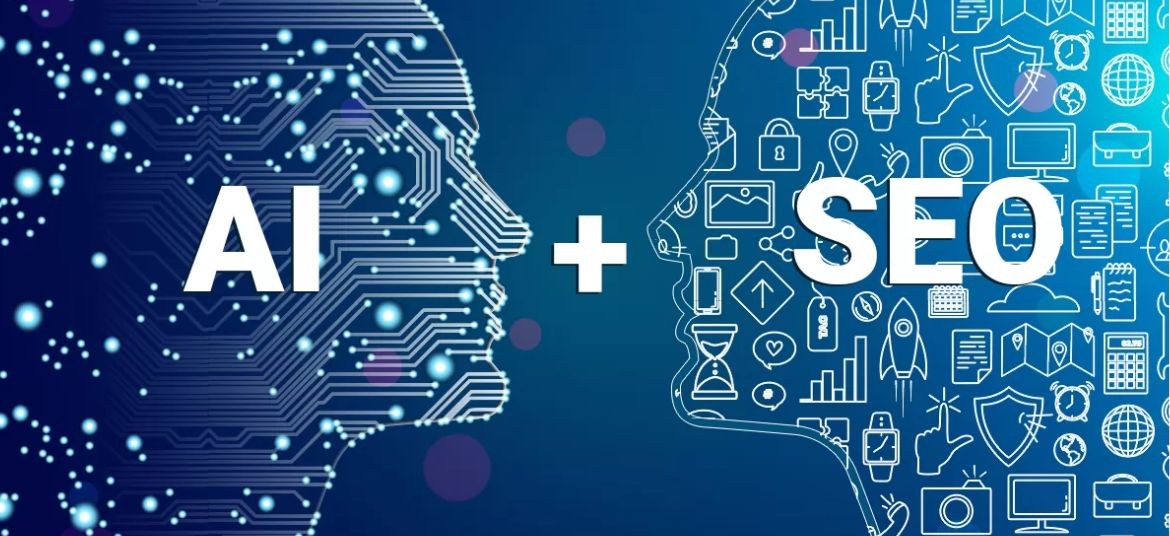
How to Leverage AI in SEO Strategy
Post Author: Harry James
Post Date: 30 June 2024
Search engine optimisation (SEO) is being revolutionised by Artificial Intelligence (AI), offering powerful tools and insights that can significantly enhance your digital marketing efforts. AI for SEO strategies are transforming how businesses approach search engine optimisation, from using the best AI tools available to understanding the advantages and drawbacks of AI in SEO. By leveraging AI in your SEO strategy, you can improve your website’s search engine rankings, provide a better user experience, and stay ahead of the competition. Here’s how to integrate AI into your SEO practices effectively.
Understanding AI in SEO
AI in SEO involves using machine learning algorithms and data analysis to optimise your website’s content and performance, enhancing your search engine optimisation efforts. AI can automate and enhance various aspects of SEO, from keyword research to content creation and even technical SEO, to improve how your website ranks on search engines. The technology’s ability to process large amounts of data quickly and accurately makes it an invaluable asset for marketers.
Key AI SEO Tools
AI for Keyword Research
AI SEO software like Ahrefs, SEMrush, and Power SEO Tools by Four Dots use AI to analyse search data, identify trends, and suggest the best keywords for your content. These tools can predict which keywords will drive the most traffic based on historical data and current trends.
Content Creation and Optimisation
AI-powered platforms like Copy.ai and Market Muse can generate high-quality content tailored to specific keywords and audience needs. These tools analyse top-performing content in your niche and help you create and optimise content that is more likely to rank well in search results.
Technical SEO
AI can assist with technical SEO by identifying and fixing issues that may affect your website’s performance. Tools like Screaming Frog and DeepCrawl use AI to conduct comprehensive site audits, highlighting problems such as broken links, duplicate content, and slow page speeds.
Integrating AI into Your SEO Strategy
Enhanced Keyword Research
Start by using AI tools to conduct thorough keyword research. Look for long-tail keywords and phrases that your target audience is searching for. AI tools can provide insights into search volume, competition, and search intent, allowing you to choose the most effective keywords for your content.
Content Optimisation
Use AI to optimise your existing content by automating various SEO tasks. AI tools can analyse your content for readability, keyword usage, and overall SEO friendliness. They can also provide recommendations for improving your content, such as adding relevant keywords, restructuring sentences, and enhancing meta tags.
Predictive Analysis
AI can predict future trends and changes in search behaviour. By analysing large datasets, AI tools can forecast which topics and keywords will become popular. This allows you to create content ahead of time, positioning your website to capture traffic from emerging trends.
Voice Search Optimisation
With the rise of voice search, optimising your content for voice queries is crucial. AI can help you understand how people use voice search and suggest ways to tailor your content for voice-activated devices. Focus on natural language and question-based queries to improve your chances of appearing in voice search results.
User Experience Improvement
AI can analyse user behaviour on your website, providing insights into how visitors interact with your content. Use this data to improve the user experience, such as making your site more navigable, enhancing page load speeds, and ensuring mobile compatibility. A positive user experience can lead to higher engagement and better search rankings.
The Impact of AI on SEO
The integration of AI into SEO practices offers numerous benefits:
- Efficiency: AI can automate repetitive tasks, such as keyword research and content optimisation, saving you time and effort.
- Accuracy: AI analyses large amounts of data with high accuracy, providing insights that are more reliable than manual analysis.
- Personalisation: AI allows for more personalised content and user experiences, which can improve engagement and conversion rates.
- Competitiveness: Leveraging AI gives you a competitive edge by enabling you to stay ahead of SEO trends and adapt quickly to changes in search algorithms.
Practical Applications of AI in SEO
Automated Content Generation
AI-generated content can help fill content gaps quickly. By using AI tools like GPT-4, businesses can produce blog posts, product descriptions, and social media updates efficiently. While human oversight is essential to ensure quality and relevance, AI can significantly reduce the time spent on content creation.
Improved Link Building
AI can streamline link-building efforts by identifying high-quality link opportunities. Tools like Link Hunter and Backlink Manager use AI to find relevant websites and blogs for potential backlinks, helping you build a stronger link profile.
Analysing Competitor Strategies
SEO tools can analyse competitors’ websites to identify their SEO strategies. By understanding what keywords they rank for, their backlink profiles, and their content strategies, you can gain insights into improving your own SEO efforts.
AI in Local SEO
Optimising for Local Search
AI tools can help you optimise for local search by analysing local search trends and identifying local keywords. Tools like Reportz.io, Dibz.me, Base.me, and The Trustmaker use AI to ensure your business appears in local search results, helping you attract more local customers.
Managing Online Reviews
AI-powered sentiment analysis tools can help you manage online reviews more effectively. By analysing customer reviews, you can gain insights into customer satisfaction and identify areas for improvement. Tools like Reportz.io and The Trustmaker use AI to monitor and respond to reviews in real time, improving your business’s online reputation.
AI and Mobile SEO
Mobile-First Indexing
Google’s mobile-first indexing means that the mobile version of your website is considered the primary version. AI tools can help you optimise your site for mobile devices by analysing mobile usability and page speed. Tools like MobileMoxie and Google’s Mobile-Friendly Test use AI to provide recommendations for improving your site’s mobile performance.
Accelerated Mobile Pages (AMP)
AI can assist in implementing and optimising AMP, which can improve your website’s load time on mobile devices. Faster load times can lead to better user experiences and higher search engine rankings. AI tools can help you identify the best pages to convert to AMP and monitor their performance.
Future Trends in AI and SEO
AI-Driven Content Personalisation
As AI continues to evolve, we can expect more advanced content personalisation. AI will be able to deliver highly customised content to users based on their behaviour, preferences, and search history. This level of personalisation can enhance user engagement and improve SEO performance, and there are many free AI SEO tools available to help you achieve this.
Visual and Video Search
AI is making significant strides in visual and video search. Tools like Google Lens and Pinterest Lens use AI to allow users to search using images and videos. Optimising your visual content for these types of searches will become increasingly important.
AI in Voice Search
Voice search is growing rapidly, and AI is at the forefront of this trend. Understanding and optimising for voice search will be crucial as more users rely on voice-activated devices for their search queries.
Conclusion
Leveraging AI in your SEO strategy can significantly enhance your digital marketing efforts. By using AI-powered tools for keyword research, content creation, technical SEO, and predictive analysis, you can improve your search engine rankings and provide a better user experience. Stay proactive in adopting AI technologies and continuously adapt your strategies to stay competitive in the evolving digital landscape. Embracing AI will not only streamline your SEO processes but also position your business for long-term success.
Summary
AI is transforming SEO by automating tasks, providing accurate insights, and personalising user experiences. From keyword research to technical SEO, AI tools like Ahrefs, Copy.ai, and Screaming Frog can significantly enhance your SEO strategy. By staying updated with AI trends and integrating these technologies into your SEO practices, you can improve your website’s performance, attract more traffic, and maintain a competitive edge in the digital landscape.
Key Takeaways
- Understand AI in SEO: Learn how AI can automate and enhance various aspects of SEO.
- Utilise AI-Powered Tools: Use tools like Ahrefs, Copy.ai, and Screaming Frog to improve keyword research, content creation, and technical SEO.
- Integrate AI into Your Strategy: Enhance keyword research, optimise content, predict trends, and improve user experience with AI.
- Stay Ahead of Trends: Keep up with AI developments to stay competitive and improve your SEO efforts.
- Embrace AI for Long-Term Success: Continuously adapt and innovate your SEO strategies with AI to achieve sustainable growth and success.
By understanding and leveraging AI in SEO, you can create a more efficient, accurate, and competitive digital marketing strategy that drives long-term success.




